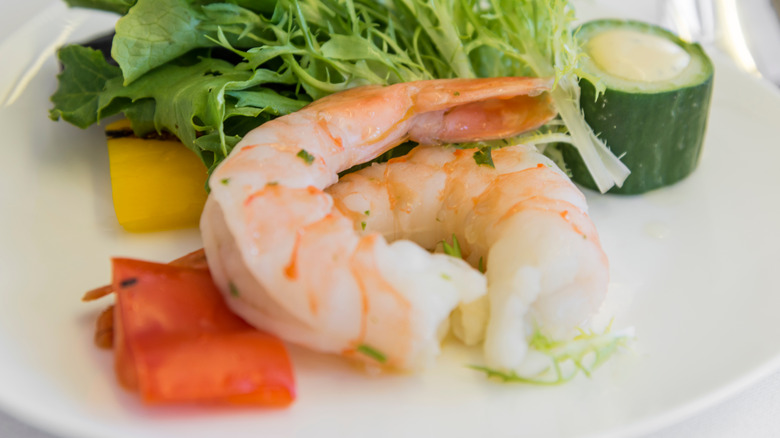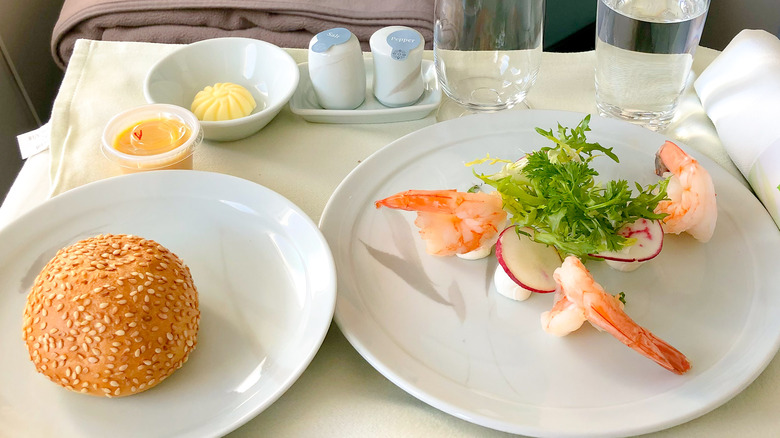Why You Should Think Twice Before Eating Airplane Shrimp
Let's admit it: We have a love-hate relationship with airplane food. Some of us get excited seeing that food cart roll down the aisle. Maybe it's because airplane food tastes different, or because unique culinary experiences can sometimes feel like a luxury. On the other hand, the thought of eating stale, frozen airplane meals can be so nauseating for some passengers that they refuse to entertain the idea of munching on in-flight food, even if just to pass the time.
Commercial flights didn't initially offer much in the name of entertainment. To compensate, the post-World War II era of air travel featured multi-course meals on flights like lobster, carved roast beef, and prime rib (via The Atlantic). But airlines couldn't sustain fine dining as flying becoming more accessible and cheaper. The golden age of airplane meals was soon over. And if there were any lingering hopes of a return to the glory days of in-flight dining, the pandemic has likely shattered them.
In-flight dining has evolved a lot since it was incorporated into flights. Despite innovations in airline catering, there are still some foods you should never eat on a plane. One such food is shrimp, and it's not because of its texture or taste.
Airplane shrimp could make you very sick
The airline industry's priority for serving meals is safety, not taste (for obvious reasons). However, there are still some foods that can make you sick. If you love eating shrimp, you may have devoured the seafood while on an airplane. Shrimp is one of the most consumed seafoods in the United States (per NOAA). But if you find shrimp on your airplane menu, it would be best to steer clear.
Airline food safety expert Jean Dible warns that there can a variety of pathogenic bacteria in shrimp served on planes (via CNBC), noting, "All seafood, but in particular shrimp and oysters, are pretty darn dangerous ... They serve a lot of shrimp aboard first-class."
If you're taking her warning lightly, you may want to consider one hard-to-swallow 2015 study by Consumer Reports that found 60% of frozen shrimp sampled were contaminated with bacteria. The samples contained traces of potentially harmful bacteria, including salmonella, listeria, vibrio, and E. coli. The study noted that 2% of the frozen shrimp sampled were contaminated with the superbug MRSA (Methicillin-resistant Staphylococcus aureus).
While bacteria wasn't specifically mentioned as the reason why the late chef Anthony Bourdain couldn't stand airplane food, it's safe to say it's more than enough reason for us to dismiss the idea of shrimp cocktails on any flights in the future.

